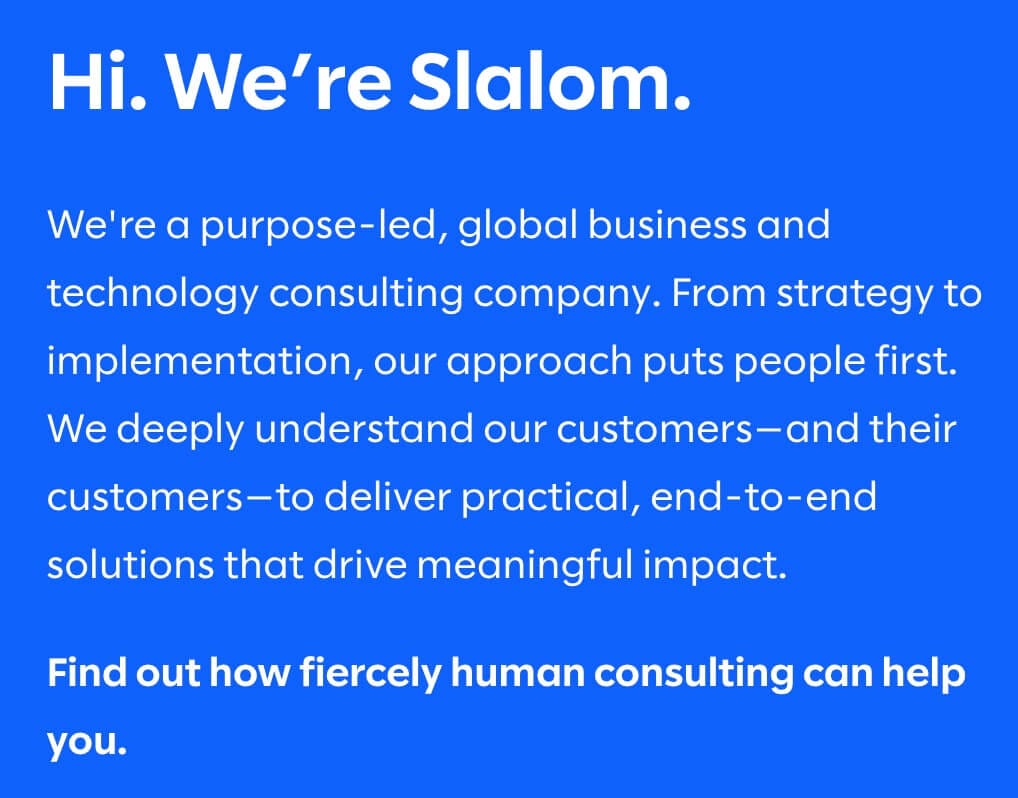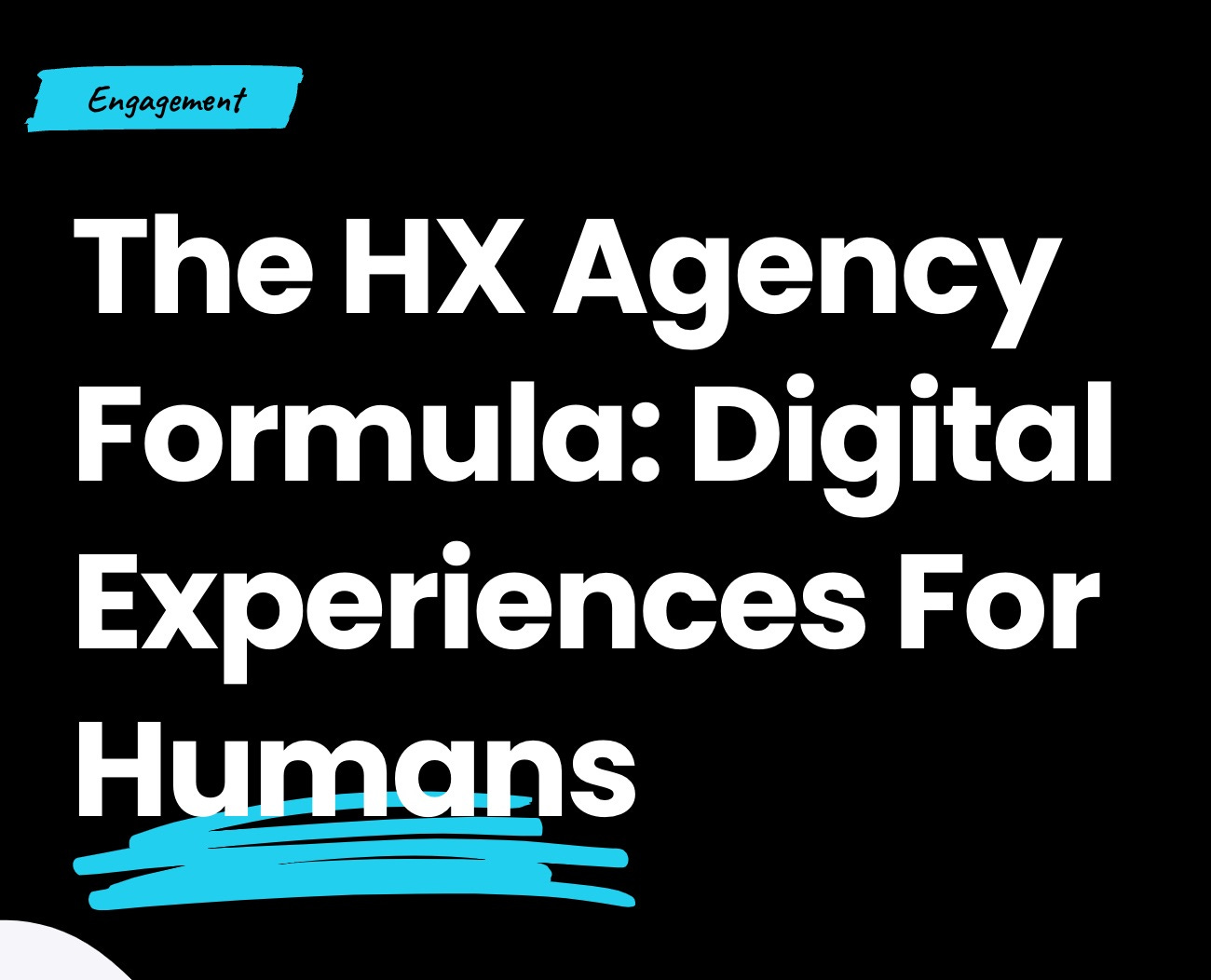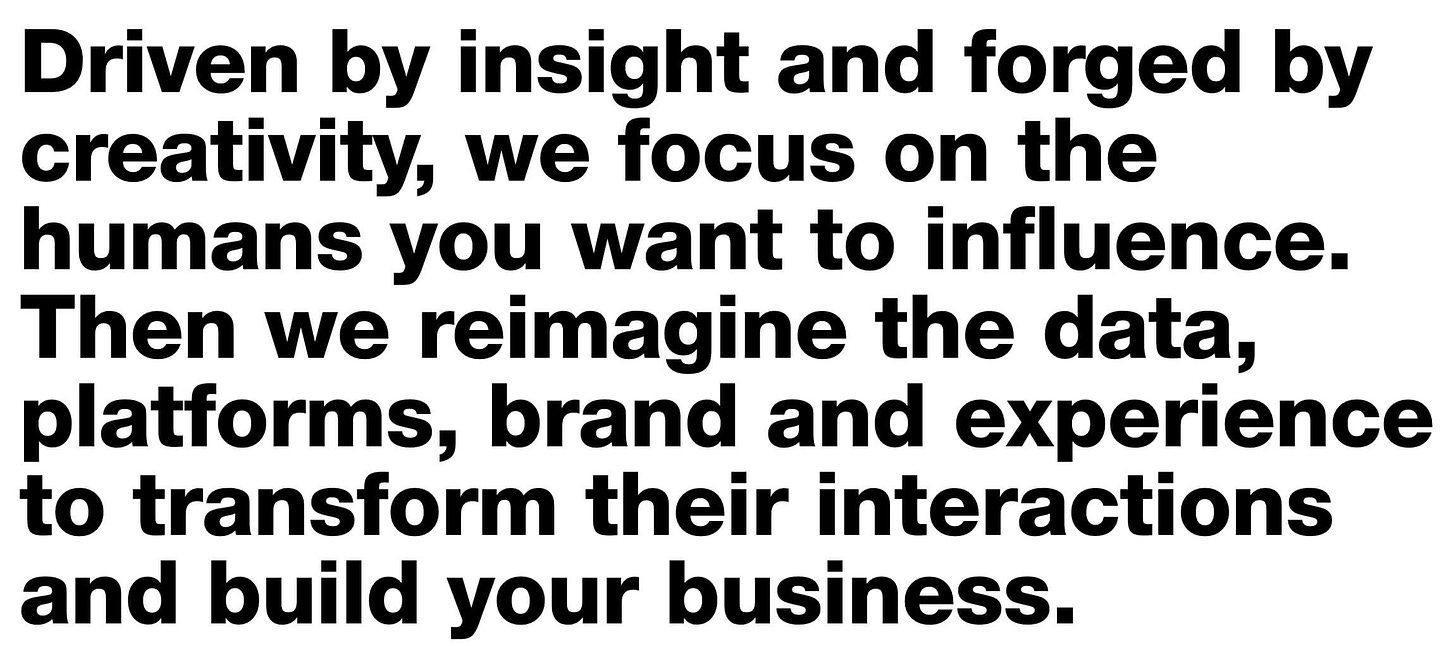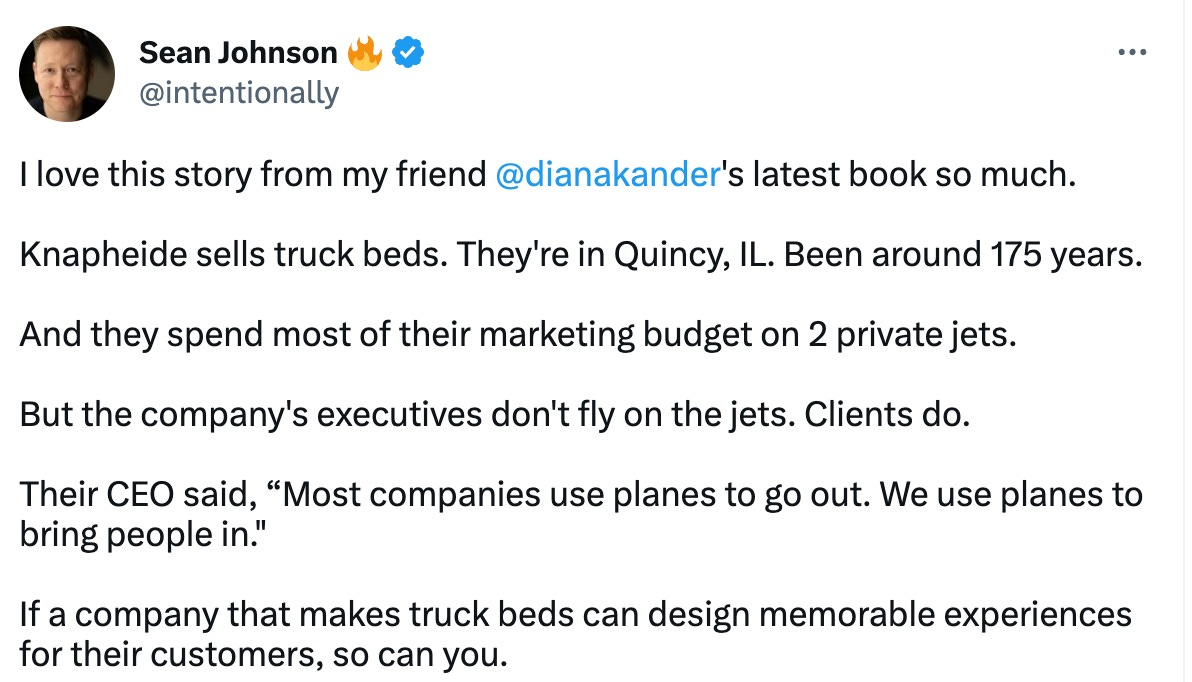Private Jets Are a Great Marketing Idea!
And fiercely human consulting is better than regularly human
Hello Gobbledeers,
How’s it going? Good? If it’s good, it’s because you don’t have a daughter who would like to go to see Taylor Swift in concert, but can’t because her parents got shut out of the ticket sale (twice!) and they won’t spend an insane amount on tickets.
Which is to say - if anyone has an extra ticket in NYC (or, really, anywhere at this point), we may be able to trade some cash + consulting for it…
Either It Is or It Isn’t
Back in my analyst days I had a boss who would read my research and inevitably rip it to shreds because I wrote a chunk of it in passive voice (ie, “A chunk of it was written in passive voice” rather than “I wrote a chunk of it in passive voice.”). Passive voice is un-authoritative (maybe not a word) and wishy-washy and like all things Fiona, my boss was correct and I was wrong.
Nobody is paying an analyst to hedge their bets.
Along those lines…
The Hollywood Reporter published a short oral history of MTV News this week (to mark the shuttering of MTV News), which included a blurb from former MTV News reporter (and person upon whom my roommate Jim and I had a huge crush) Tabitha Soren. In the article Soren mentioned this advice she received from grizzled veteran MTV News reporter Kurt Loder**:
“Kurt knew every bit of music history. His musicology was just such a gift for me to learn from. Never mind his writing experience. He always said, “Tabitha, you can’t use ‘seems.’ It either is or it isn’t.””
Well, goddammit Kurt Loder, if that isn’t the best piece of writing advice I’ve heard since “never use the passive voice…”
Oh, the Humanity!
There’s been a move in the customer experience consulting world to start using “Human Experience” instead of “Customer Experience,” I guess to separate companies who are targeting inanimate objects, animals and pieces of fruit. I don’t know.
I discovered that because I was on a few technology agency sites and they used “human” in their copy. That seemed odd. I get that some company along the way decided to go the “let’s create our own category” route (an idea I keep advocating against), and pushed to change the category to Human Experience Consulting.
I have lots of reasons for why I’m anti-category creation, but having your category name show up on websites before anyone knows what you’re talking will lead to some head scratching from your prospects.
Let’s take a look…
Slalom is some sort of consulting firm. Specifically, according to them, they’re “fiercely human.”
I assume “purpose-led” means something, though I don’t know what.
Digital agency Formidable also is clear about who they’re targeting. Specifically, they are targeting humans.
I don’t know if “humans, just like you” means “did you know that you’re a human?” or “exactly the type of human that you are like.”
Australian digital agency Go Digital is targeting a similar market:
I guess that’s “the human experience agency creating experiences for humans…who experience human experiences created by a human experience agency.”
Kamsoft is really setting the bar high:
Breathtaking!
You know who takes breaths? Humans (in case you were wondering).
When Infosys bought Wongdoody in 2018, the latter was described as “an award-winning creative agency.” “Creative agency” is so 2018. Wongdoody now describes itself as a “human experience company.” Because of course.
But they - very helpfully - put this pile of gobbledy on their website to help explain what that means:
Focus on the humans.
Your 90% Thing
One of the ideas? (maxims? evidence-free beliefs?) I’ve put forth here is that software marketing teams try to do too many tactics and instead should focus 90% of their energy on the one thing that they know works.
Yes, at some point ($20 million ARR? $30 million? $100 million?) you may be at the point where you should diversify. But if a tactic is driving meetings (or whatever goal you’re focused on, though if your go-to-market involves enterprise sales the goal should be meetings), then you should keep investing more in that tactic.
I mention that because I was struck by this quick story about a truck bed manufacturer using 90% (ish) of its marketing budget on private jets that they use to fly prospects (and clients) to their factory in Illinois.
There are two pieces of that blurb that stick out to me:
I’ve come to realize that anytime I read an article where I agree with it (or it agrees with me) I think to myself, “that’s a great article!”
I’d really like to know if the CEO (6th generation CEO! They made wagons back in 1848!) came up with the plane idea himself, or if someone convinced him. Because I’m trying to imagine how to convince a CEO that this is your marketing plan. Even though I think it’s brilliant! It’s a brilliant idea!
If you can get someone to get on a private plane THAT YOU SENT FOR THEM and come visit you, the conversion rate absolutely must be higher than if you did a few Zoom calls, no?
So I wonder, has anyone had success actually convincing a CEO that your marketing strategy should have this level of focus? Because as I have conversations with people about positioning & messaging, I’m increasingly convinced that the hard part of that work is convincing the rest of the team (starting with the CEO) that focus is actually the best strategy.
Because it’s uncomfortable. Focusing is uncomfortable. Having a team of 3 marketers and a $1 million budget (typical for a $10ish million business) doing a whole bunch of things feels like you’re busy doing marketing. Which you are! You’re doing a lot of marketings (tm). But focusing those people on one message, in one channel - that actually will work (assuming you’ve found a thing that works)? That’s tough.
Public policy guy (and fellow Substack newsletter writer) Matt Yglesias just had a column about using AI to reduce Los Angeles area traffic, and one part of it seemed appropos here. He was saying how AI can certainly provide solutions (often solutions we already know) to reducing traffic in LA, but that’s not the hard part.
“We need to do it, [that] is the hard part.”
You really don’t need me to tell you that focused messaging with a great offer is a good way to do marketing. But you need to do it, which is the hard part.
He continued (and sorry, this is a little wonky, but I’ll get to the point):
But what I can tell you is that domain specialists often underrate the extent to which every major problem ultimately traces back to the same nexus of issues related to selfishness, short-sightedness, endemic lack of trust in institutions, the difficulty of making credible bargains, systemic principle-agent problems, status quo bias, and the broad difficulty of making positive-sum policy changes.
Basically, regardless of the big public problem you’re trying to solve, you’re going to bump up against the same issues, over and over.
I think this is true in marketing - especially software marketing - too. There’s an endemic lack of trust in marketing, and a lack of real understanding about what marketing does, and the difficulty of building the marketing/sales relationship, and the fear of not doing something someone else is doing.
I shared the private jet story because when the CEO/6th generation family member believes in something - even something quirky like investing all of your marketing budget in a private plane so you can close deals in person - it just happens. And when they don’t…gobbledy.
As always - always! - thank you for reading. And we are soooooooooooo close to hitting 1,000 subscribers. Which feels like a milestone. So if you wouldn’t mind sharing, we’ll get there. Then cupcakes.
Irrelevant Footnote
**Any time I see Kurt Loder on TV or read about him, I think about this stupid story: In 1994 my roommate Jim (mentioned above) and I went to go see power-pop alt-rocker (tm) Matthew Sweet perform at the Blind Pig in Ann Arbor. For God knows what reason they oversold the show (because in 1994 it was entirely possible that they would oversell a Matthew Sweet show) and the fire marshal came out and said that 100 of us would have to leave or he couldn’t perform. Blah blah blah, Jim and I decide to leave. As we’re walking out Matthew Sweet is saying goodbye to everyone (thanks for nothing!) and one of us says (jokingly) “We’re going to tell MTV News about this,” to which he responds, “I know Kurt Loder…(pause)…he likes to get drunk.”
That was the first and last conversation I ever had with Matthew Sweet, but it’s the only thing I think of whenever Kurt Loder’s name is mentioned (once every 7 years).
Which made it all the funnier when this is Loder’s first blurb in that oral history:
KURT LODER Everybody was pretty nice on the street. I think somebody tried to punch me out once, but I was in a bar, so who knows?










Being the aforementioned "Jim," all of this is true. We had developed (passive voice?) a borderline un-healthy crush on Ms. Soren. And Matthew Sweet did proclaim to know: (a) Kurt Loder; and (b) that he (Loder) liked to get drunk. For clarity, we (Blank and I) make no claims about Mr. Loder's predilection for alcohol abuse. For further clarity, our author is the one who said he was going to call MTV News. Always here to assist.